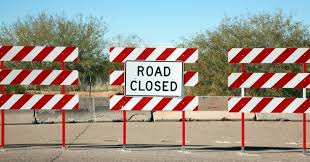The Value of a Critique
/I am in two monthly critique groups. One is in-person and the other is a video chat. In each, we read about 50 pages of the others’ works and provide feedback. I joined the in-person one about ten years ago, and it took some courage to submit my work the first time. I actually waited a couple of months before dipping my foot in the pool.
But I learned quickly that the feedback from these groups is invaluable. These are readers and mystery lovers who help with structure, plot holes, typos, and writing issues. All writers want to hear how wonderful their baby is, but sometimes, a detailed critique is worth it’s weight in gold as you try to make your manuscript the best it can be. Here are some of the things I’ve learned through the years.
Find a group that understands your genre. It helps that the feedback focuses on what you’re trying to write. Both of my groups are made up of mystery writers/readers. I read other genres, but I want my writing focus to be on mysteries.
None of the members knew each other when we started. I think this was helpful. When people are friends, there’s often a tendency not to be open and honest about the writing because you don’t want to hurt the other’s feelings. You can give a positive critique without being brutal or covering every page with red ink.
We also set the rules up front, and there is a moderator in the larger group to keep us on task and watch the clock.
The writers in my groups are at different stages of their writing journeys. That brings a variety of perspectives. They also come from different backgrounds and experiences, and the wealth of knowledge is amazing.
Everyone in the group has committed to read and provide comments on the submissions. I read theirs; they read mine. They help me talk through plot holes or weak areas. I believe in sweat equity. Everyone is contributing.
I learn as much from the discussion of others’ issues as I do with the one centered on my work.
There are a few folks in one of my groups who don’t write frequently or just want to be readers. But they read a lot of mysteries. Their comments often help me judge reactions to tension points and characters.
Read the feedback and decide what you’re going to change. If multiple people had the same reaction, you probably should take a look at it.
The monthly deadline helps me stay on track with my writing. I am more productive when I know I need to get my pages ready for my groups.
The goal is to get your work published, and you need to make your WIP the best version possible. For me, the writing/revising part of the process is key to improving the work. This takes the most time and energy. I’ve been alone with my manuscript for months, and the critique groups provide me a way to introduce it to readers and get an honest reaction. Invest in your writing and find a group to help you.

















